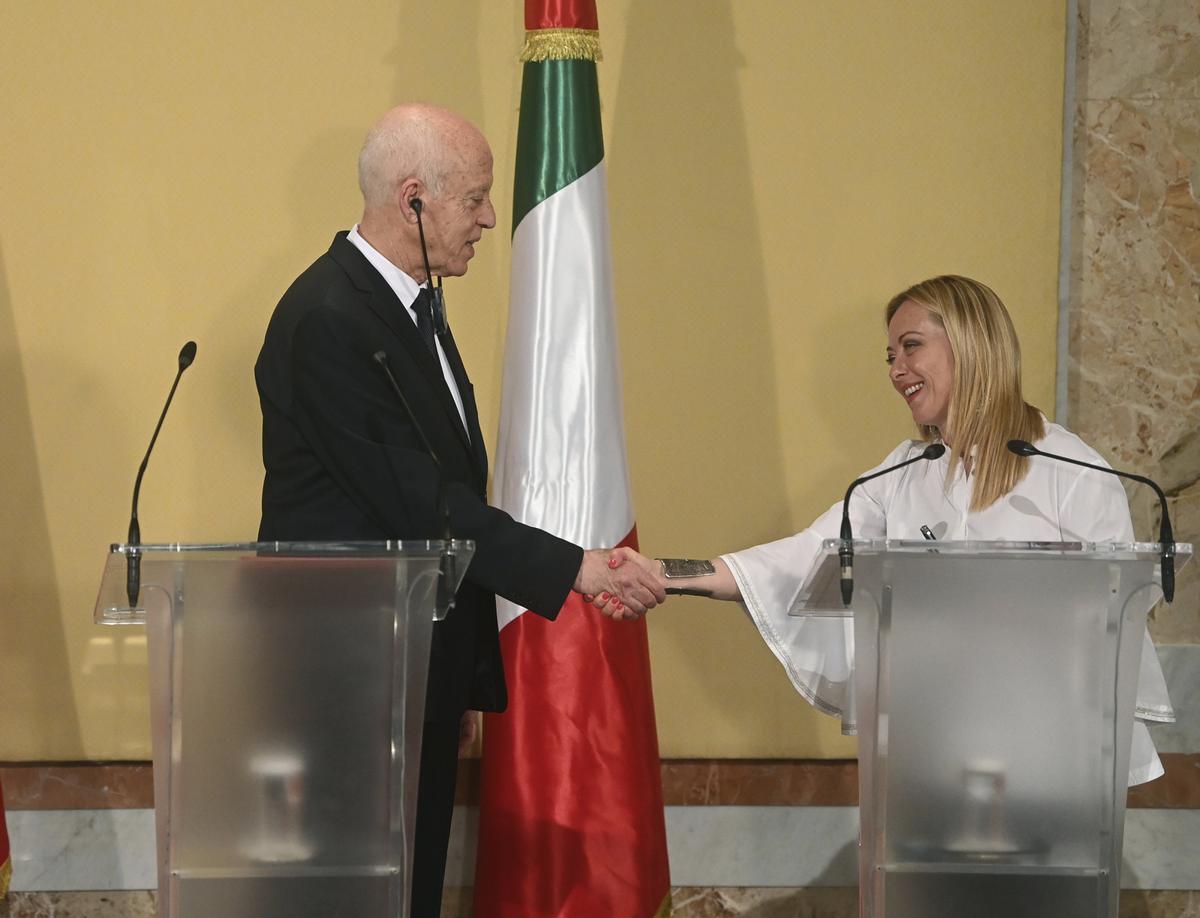
The European Union (EU) and Tunisia have recently taken significant strides towards enhancing their economic and trade relations while addressing the pressing issue of migration. In a noteworthy development, the leaders of Italy, the Netherlands, and the European Commission embarked on their second visit to Tunis within a month’s time. During this visit, they unveiled promising advancements and expressed optimism regarding the establishment of a comprehensive partnership between the EU and Tunisia.
Building a Stronger Economic and Trade Relationship
One of the primary objectives of the high-level delegation’s visit was to strengthen economic and trade ties between the European Union and Tunisia. Recognizing the potential for mutually beneficial collaboration, both parties engaged in productive discussions to pave the way for a prosperous future. To signify their commitment to this cause, a memorandum was signed during the visit, acting as a solid foundation for the envisaged comprehensive partnership.
Unlocking Opportunities for Economic Growth
The EU and Tunisia share a common goal of fostering economic growth and development. By forging closer economic ties, they aim to create a conducive environment for trade and investment. This collaboration is expected to unlock new opportunities for businesses, generate employment, and stimulate innovation and entrepreneurship. With Tunisia’s strategic location as a gateway to Africa, it offers a remarkable platform for European enterprises to access emerging markets and diversify their operations.
Strengthening Trade Relations
Enhancing bilateral trade is a key aspect of the EU and Tunisia’s joint efforts. By eliminating barriers and streamlining trade procedures, they seek to facilitate the flow of goods and services between their respective markets. This will not only bolster trade volumes but also foster a climate of trust and cooperation. The establishment of a solid trade framework will provide certainty and predictability for businesses, encouraging greater cross-border investments and commercial partnerships.
Promoting Sustainable Development
The EU and Tunisia are committed to promoting sustainable development as part of their collaboration. Recognizing the importance of social and environmental responsibility, they intend to integrate sustainability into their economic and trade practices. This includes encouraging green technologies, promoting renewable energy initiatives, and fostering environmentally friendly business practices. By doing so, they aim to achieve long-term economic prosperity while preserving the planet for future generations.
Combating Migrant Smuggling and Ensuring Humanitarian Support
Another critical aspect addressed during the leaders’ visit was the pressing issue of migrant smuggling across the treacherous Mediterranean Sea. The EU and Tunisia have reaffirmed their commitment to combatting this illicit activity and providing necessary humanitarian support to those affected.
Joint Efforts for Increased Security
Recognizing the gravity of the situation, the EU and Tunisia have joined forces to tackle migrant smuggling head-on. By enhancing border security measures, improving intelligence sharing, and implementing effective law enforcement strategies, they aim to dismantle the networks facilitating such criminal activities. The leaders’ visit provided an opportunity to exchange best practices and establish a framework for sustained cooperation in combating illicit migration.
Protecting Human Rights and Ensuring Humanitarian Assistance
While addressing the issue of migration, the EU and Tunisia remain steadfast in their commitment to upholding human rights and providing humanitarian assistance. They aim to establish mechanisms to protect the rights of migrants and refugees, ensuring their safety and dignity throughout the migration process. By working together, they seek to create a more compassionate and comprehensive approach that addresses the root causes of migration and offers sustainable solutions.
A Positive Outlook for the Future
The recent visit of the European leaders to Tunisia has set the stage for a promising future characterized by strengthened economic and trade relations, as well as enhanced cooperation on migration-related challenges. The memorandum signed during the visit serves as a testament to the commitment of both parties to foster a comprehensive partnership. Through joint efforts, the EU and Tunisia are poised to unlock new opportunities, foster sustainable development, combat migrant smuggling, and ensure humanitarian support.
